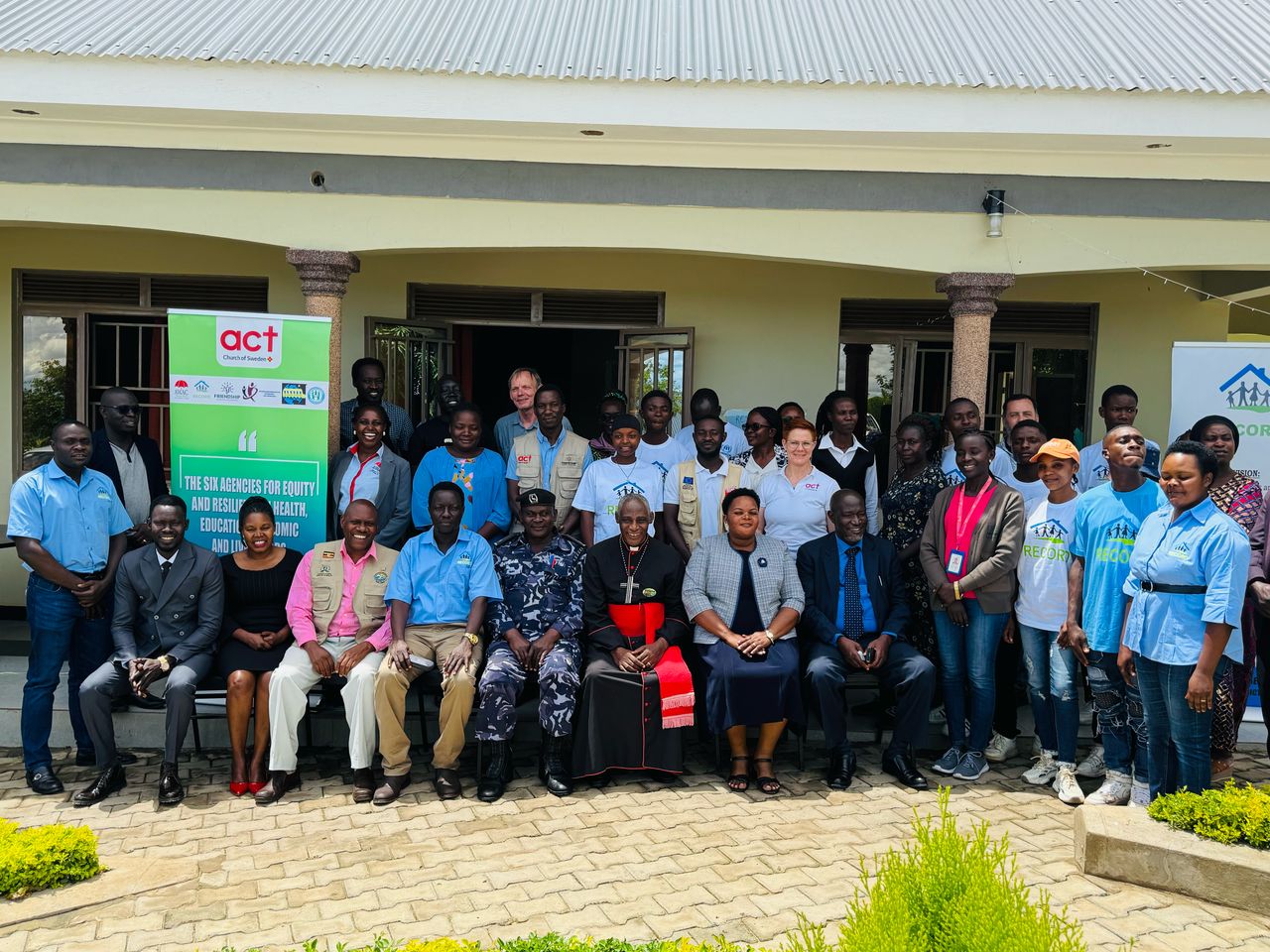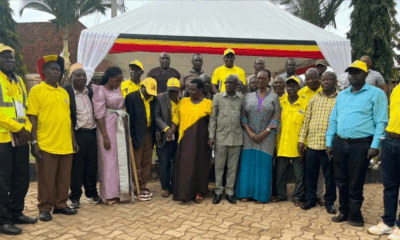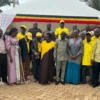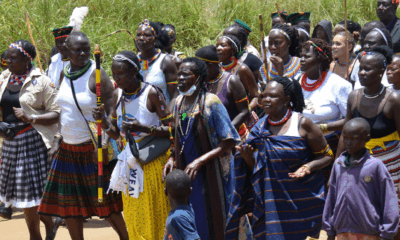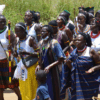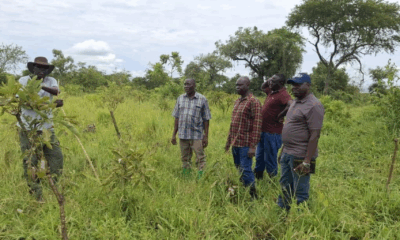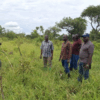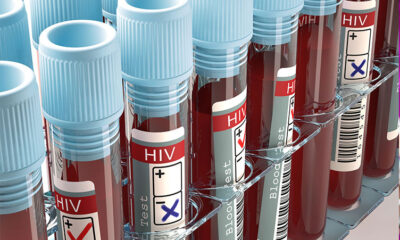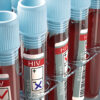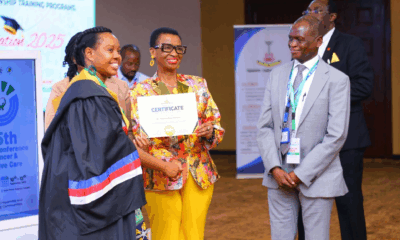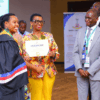Health
Six Agencies Unite Under SAFER HEELs to Support Vulnerable Refugee Populations
A powerful Coalition of six local Civil Society Organisations (CSOs) has joined forces to launch a groundbreaking grassroots initiative aimed at fostering equity and resilience among marginalised communities within Uganda’s refugee settlements.
Christened “Six Agencies for Equity and Resilience in Health, Education, Economic and Livelihoods (SAFER HEELs),” the consortium was officially launched on 8th May 2025, promising a community-led approach to address complex vulnerabilities.
The initiative is spearheaded by the Alliance of Women Advocating for Change (AWC), with Executive Director Maklean Kyomya expressing profound excitement about collaborating with various stakeholders. “The SAFER HEELs project is a consortium of six agencies supported by Act Church of Sweden. We are very much humbled, and we are so excited and looking forward to working with the key stakeholders including governments institutions; Office of the Prime Minister (OPM), Ministry of Health, Office of the President Coordinated by Uganda AIDS Commission (UAC), Ministry of Gender, Labour and Social Development (MGLSD) and Religious Institutions, Community led organisations, individuals, but also the local district government. This project will be implemented in the refugee settlements and districts affected by war, in particular Kamwenge, Yumbe, Terego, Adjumani and Gulu,” she said.
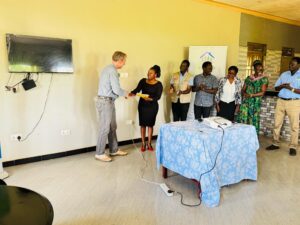
Alliance of Women Advocating for Change (AWC), Executive Director Maklean Kyomya, receiving agreement from the Act Church of Sweden’s representative Mr. Lennart Hernander
Kyomya further emphasised the unique nature of the project’s focus. “This project is very unique because it’s looking at targeting communities with multiple intersecting vulnerabilities, communities which are diverse in terms of vulnerabilities, but it’s also looking at the inclusion of all of us under the UNAIDS principle of “Leaving No One Behind” this principle emphasizes inclusivity, addressing systemic inequalities and discrimination to reach the most marginalized groups. We are so excited about the fact that it’s one of the first and unique projects that is going to be implemented in these settlements.”
This three-year initiative, building on its pilot phase, has already proven the effectiveness of community-led innovations and collaborative problem-solving with various stakeholders.
Kyomya also highlighted the crucial role of the Act Church of Sweden, the project’s funder, and the collaborative spirit driving the initiative. “We deeply appreciate the way Act Church of Sweden works and how they have supported, nurtured, and mentored us, culminating in their generous funding,” she stated.
“Crucially, our approach has been effective and meaningful, consultative with community members and groups, ensuring this is truly a community-led and community-owned project, brimming with local creativity, innovation, and practical solutions developed by us, for us. We are confident that with careful implementation, our plans for sustainability and resilience will be fully realised.”
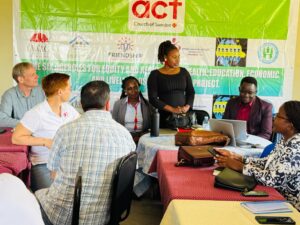
Maklean Kyomya addressing delegates
Dr. Moses Mukasa, the researcher who brought this project to life, explained his heartfelt motivation. “As a researcher deeply involved in supporting marginalised communities for many years, I realised something important: the time for outsiders to simply impose solutions is over. Seeing the incredible skills and dedication of the local partners involved, their deep connection to the communities, it just made sense to build on that. For me, it’s about empowering those within the community to find their own answers, rather than always looking for help from outside. This project really comes from a desire to solve the challenges we face right here, at the grassroots level. It’s about local solutions, truly.”
Dr. Moses explained that SAFER HEELs isn’t just a short-term project; it’s meant to grow into a wider network that can help the whole country. “Our goal is for SAFER HEELs to become something bigger than just this initial project—a network that can truly make a difference nationwide,” he said.
“We started in a few districts because we thought it was a good place to begin. Because when you look at the problems across Uganda, these specific areas, like Adjumani, Yumbe, Terego and here, really face some of the toughest challenges, with people dealing with many different difficulties all at once. That’s why we’re starting here – because the need is so clear.”
He added, “Refugees face really tough times. They’ve been through so much, and life here is very different for them compared to Ugandans who are home. They often have many problems all at once and less support. But our project also helps the Ugandan communities that welcome them. In Uganda, everyone lives together and helps each other, so we’re helping both groups.”
Mr. Lennart Hernander, representing the Act Church of Sweden, the funders of the SAFER HEELs project, emphasised the core values of his organisation, highlighting that their work is fundamentally about action and achieving tangible results. He then shared an anecdote, recalling a question posed about the significance of one’s actions and treatment of others, underscoring the importance of deeds over mere words or religious observance.
“We listened to the organisations in the consortium and asked, ‘What do you want us to do for you?'” he explained. “We are proud to support this diverse group of organisations, each bringing unique experiences and thematic knowledge to create something greater than the sum of its parts.”
Resty Magezi Kyomukama, the Deputy ED of AWAC, detailed the project’s structure, emphasising the “Co-creation of community ideas” as its foundation. “We believe in bringing what the community has, their efforts, their knowledge, to create what sustains their well-being,” she stated. “This initiative is locally driven to ensure its sustainability.”
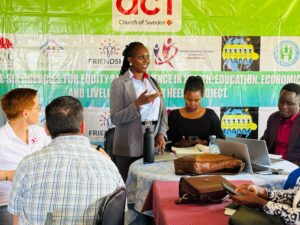
Resty Magezi Kyomukama, the Deputy ED of AWAC, speaking to delegates
Kyomukama further outlined the key focus areas of the SAFER HEELs project:
Mental Health and Psychosocial Support (MHPSS): Addressing the psychological and social impacts of violence, exclusion, and marginalisation through community-based services. Sexual and Reproductive Health (SRH): Advocating for the SRH rights of marginalised groups, including youth, refugees, and key populations like sex workers and LGBTQI+ individuals.
Economic Justice and Livelihood Opportunities: Empowering marginalised groups through vocational training and microfinance to combat poverty and unemployment.
Gender-Based Violence (GBV): Challenging patriarchal norms and promoting gender equality through survivor-centred interventions.
Peacebuilding and Social Cohesion: Fostering conflict resolution and coexistence within diverse communities. Capacity Building: Strengthening the implementing organisations to ensure the sustainability of their work.
Each of the six member agencies will play a crucial role: Friendship Christian Organisation (FCO), The Walking School Bus (TWSB), Humanitarian Response and Development (HRD), Refugee Community for Resilience and Development (RECORD), Northern Uganda Women Association for Human Rights (NUWAHR), and the lead agency- Alliance of Women Advocating for Change (AWAC)
The SAFER HEELs initiative embodies a collaborative spirit, bringing together diverse expertise and a shared commitment to empowering some of Uganda’s most vulnerable populations.
With its community-led approach and strong emphasis on local ownership, the project holds significant promise for fostering lasting positive change within refugee settlements and their surrounding host communities.
Comments



